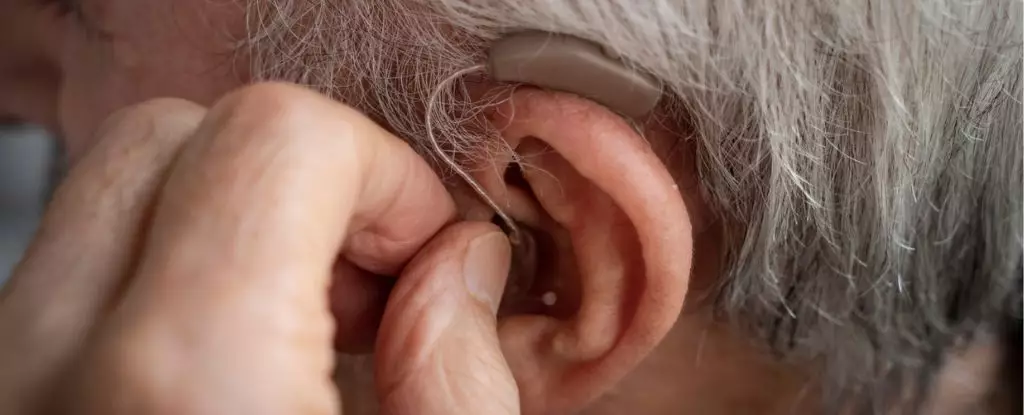Recent studies have begun to illuminate a potentially significant connection between hearing loss and the onset of neurodegenerative diseases, particularly Parkinson’s disease. Research focusing on over 3.5 million veterans in the United States has revealed a troubling trend: individuals with hearing impairment are more likely to receive a Parkinson’s diagnosis as they age. The relationship appears to be dose-dependent; the severity and duration of hearing loss correlates with increased odds of developing this debilitating condition. Notably, early intervention with hearing aids seems to play a crucial role in mitigating these risks.
The significance of these findings cannot be understated, as they contribute to a growing body of evidence suggesting an intricate link between sensory impairments and cognitive health. Hearing aids, often regarded as a low-cost and low-risk solution, might not only enhance the quality of life for those with hearing loss but could also serve to promote brain health as individuals grow older. As research continues to delve into the implications of untreated hearing loss, it becomes increasingly clear that our auditory health plays a pivotal role in our overall neurological function.
The analysis led by neurologist Lee Neilsen at Oregon Health and Science University, in conjunction with the Veterans Affairs Portland Health Care System, stands as one of the largest and most comprehensive studies addressing this issue to date. By tracking a cohort predominantly composed of middle-aged, White male veterans for twenty years, the researchers were able to demonstrate that mild hearing loss significantly raises the risk of developing Parkinson’s disease over time. Their findings posit that without timely intervention, the cumulative incidence of this neurodegenerative disorder increases markedly.
Among veterans with mild hearing impairment—many of whom were in their sixties—the study uncovered an additional ten cases of Parkinson’s per 10,000 individuals after a two-decade follow-up. Even more encouraging was the observation that those who utilized hearing aids promptly showed a notably reduced risk of Parkinson’s compared to their peers who did not adopt such aids, with signs of difference emerging as early as one year into the study.
The mechanics of why hearing aids may delay the onset of Parkinson’s disease remain somewhat elusive. Current hypotheses suggest several potential mechanisms at play. Hearing aids could potentially restore damaged neural pathways akin to how physical activity can rejuvenate weakened muscles, thereby reinforcing cognitive functions. It is also plausible that by alleviating auditory strain, these devices free up cognitive resources, which can be redirected towards other vital brain functions.
Moreover, there is a social component to consider; increased communication capabilities afforded by hearing aids likely enhance social engagement, which is critical in combating feelings of isolation and depression—both recognized contributors to cognitive decline. The multidimensional benefits of hearing aids underscore their importance not just as a means of improving sensory capabilities but also as vital tools for maintaining cognitive health.
Given the association of mild hearing loss with Parkinson’s disease, Neilsen and his colleagues advocate for the implementation of routine hearing screenings at primary care visits, irrespective of a patient’s current auditory health concerns. This proactive approach could lead to earlier diagnosis and treatment interventions, potentially staving off the cognitive decline that often accompanies neurodegenerative diseases.
As the research landscape evolves, the need for randomized clinical trials becomes increasingly pressing to further investigate the relationship between hearing aids and cognitive health. Such studies could offer more definitive answers regarding whether hearing aids actively restore lost neural connectivity or simply enhance the brain’s functional capacity. The consideration of intersecting factors, such as sleep disturbances, visual impairments, and olfactory deficits, which may compound the risk of developing Parkinson’s, suggests a complex interplay that merits further examination.
The growing body of evidence underscores the critical role hearing health plays in overall cognitive wellbeing. As innovative research continues to reveal the potential of hearing aids to mitigate risks associated with neurodegenerative diseases, the health community must prioritize auditory screenings and timely interventions. By doing so, we can pave the way for advancements in our understanding of cognitive health, ultimately working towards enhanced life quality for the aging population.


Leave a Reply